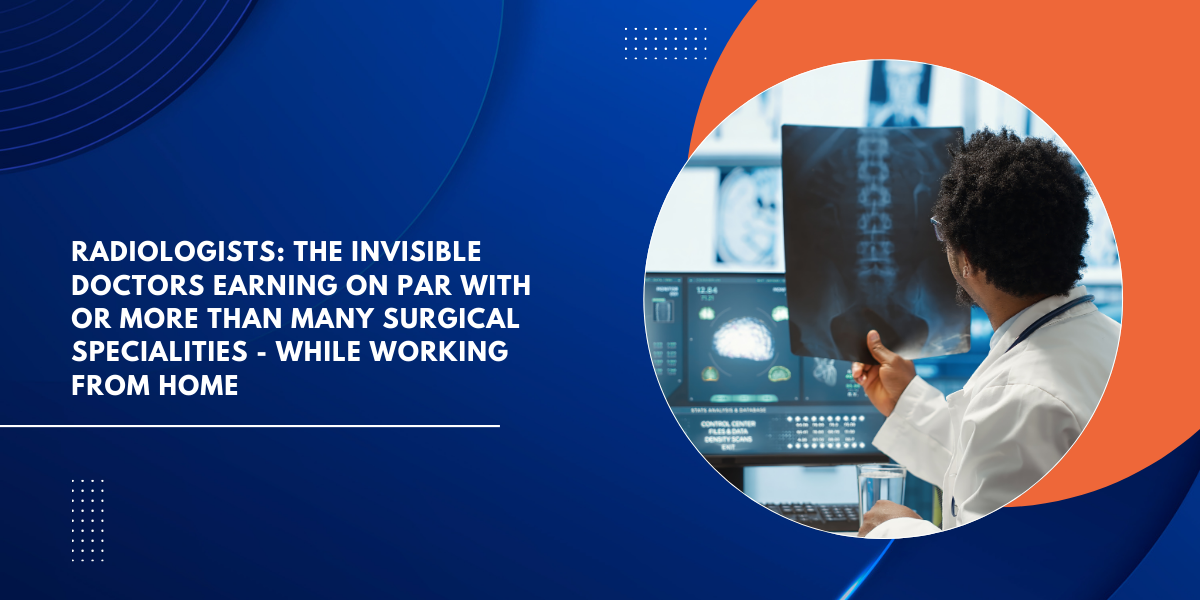A couple of weeks ago, I met Ravi and Sunita, parents from Kochi, whose son, Aditya, had just finished his 12th with a 95+ score in biology. Aditya had always been curious about how the human body works, but unlike his friends, he wasn’t interested in becoming a doctor or pharmacist.
“Lately, he’s been reading a lot about nutrition and how food affects our health,” Ravi shared. “But can that really turn into a serious career? Is this just a hobby or something worth considering professionally?”
Honestly, I hear this question more often than you’d expect. For some reason, especially in a country like India, where many families naturally lean toward medicine and engineering, often without exploring newer science opportunities. But that’s now changing, slowly but surely.
As lifestyle diseases rise and people look for prevention over cure, the demand for qualified nutritional scientists is growing, not just in India but across the world.
If your child loves biology but doesn’t see themselves in a hospital, exploring nutritional science might be worth it.
In this guide, I’ll take you through what nutritional scientists actually do, who’s suited for this career, the study path, future opportunities, and why this field is becoming such a popular option among today’s science students.
Is nutrition really becoming the future of medicine? And is this a path your child should consider? Let’s take a closer look.
Why Nutrition Science Is Quickly Becoming a Smart Career Choice
Nutrition science has quietly become one of the most exciting, future-focused career paths for science students. It’s no longer seen as just about dieting or weight loss, it’s about real health, disease prevention, and even medical breakthroughs.
Here are three big reasons why this field is exploding in popularity, especially for students who love biology, are curious about health, and want to make a meaningful impact:
1. Food Is the New Medicine
For years, healthcare mainly focused on treating diseases after they appeared. But now, prevention is becoming the focus — and food is right at the centre.
Nutrition today goes far beyond calories or weight management. It’s about how food affects immunity, gut health, mental wellbeing, chronic diseases, and even recovery from conditions like cancer or diabetes.
Hospitals, research labs, wellness companies, and startups are all hiring nutritional scientists to help create food-based solutions that prevent or manage health issues.
What this means for your child: If your child is passionate about biology and wants to improve lives through science, nutrition opens doors to healthcare — without the need to become a doctor.
2. It’s Not Just for Dietitians Anymore
Many people still think nutrition careers are only about meal plans and diet charts. But nutrition science today is much broader and more dynamic.
Nutritional scientists are working in research labs, developing food supplements, helping sports teams optimise performance, and even collaborating with the pharmaceutical industry on therapeutic diets.
They’re shaping national health policies, driving food innovation like plant-based meats or fortified products, and tackling global challenges like malnutrition.
What this means for your child: Whether your child loves research, dreams of improving public health, or wants to be part of cutting-edge food innovation, nutrition science has room for it all.
3. Technology Is Fueling the Nutrition Boom
What’s making nutrition science even more exciting today? Technology.
From DNA-based personalised diets to apps that track nutrient intake, technology is transforming how we approach food and health. But behind every smart tool, we still need human experts to understand the science and guide real-world solutions.
Tech + Nutrition = The next frontier of healthcare.
Imagine your child blending their love for biology and technology into solutions that could help thousands live healthier lives.
What this means for your child: If your child enjoys both biology and technology, this field offers the perfect space to combine those interests and build a future-ready career.
Takeaway
If you’re wondering whether nutrition science is actually a serious career choice, the answer is yes. With health becoming the world’s top priority and the lines between medicine and food getting blurrier every day, nutritional scientists are stepping into the spotlight. If your child is fascinated by biology, loves understanding how the body works, and wants a career that combines science, innovation, and real-world impact, becoming a nutritionist can be an excellent choice.
Career Spotlight: Where Can a Degree in Nutrition Science Take Your Child?
Nutrition science has quickly become one of the hottest career options for today’s science students. The world is finally realising that food isn’t just about taste — it’s about health, prevention, and even medicine. The demand for skilled nutritional scientists is growing fast. It’s a field where biology, research, and real-world impact come together.
Research Labs & Hospitals
In top research labs and hospital setups, nutritional scientists are developing life-saving diets for patients with diabetes, cancer, or heart disease. Some work on clinical trials, while others collaborate with doctors to create specialised nutrition plans for recovery and prevention.
Where can they work?
AIIMS, Apollo Hospitals
National Institute of Nutrition (NIN)
Private healthcare startups
Typical salaries:
Entry roles: ₹3–5 LPA (Clinical nutritionist, Research assistant)
Mid-career: ₹6–10 LPA (Clinical diet planner, Research lead)
Senior: ₹12+ LPA (Product development, Consulting, Healthcare innovation)
Takeaway: One of my students pursued a BSc and MSc in Clinical Nutrition, did a short research internship, and now works at a healthcare startup in Bangalore designing diet protocols for lifestyle disease management.
If your child loves biology, enjoys research, and wants to improve lives in a healthcare setting — nutrition offers a science-driven, impactful healthcare alternative.
It’s reassuring to know there are respected roles beyond MBBS where your child’s love for science can directly change lives.
2. Sports, Fitness & Food Industry
Nutrition isn’t limited to hospitals anymore. Sports teams, fitness brands, and food companies are hiring experts to improve performance, create healthier products, and design functional foods that boost immunity and wellbeing.
Where can they work?
Mumbai Indians, Indian Olympic teams (Sports nutrition)
Curefoods, Nestlé, Tata Consumer (Product development)
Fitness & wellness startups
Typical salaries:
Entry roles: ₹4–8 LPA (Sports nutritionist, Product development assistant)
Mid-career: ₹8–12 LPA (Brand nutrition consultant, Research lead)
Senior: ₹15+ LPA (Sports performance head, Product innovation lead)
Takeaway: A student I know started as a sports nutritionist for a small football academy and now consults for an IPL team during the season.
If your child is passionate about both health and performance, imagine them guiding athletes to achieve their peak — blending science with impact.
For parents, it’s wonderful to see a career that merges your child’s passion for sports and wellbeing with a secure science future.
3. Public Health & Policy
The influence of nutritional science extends far beyond hospitals or labs — it shapes public health policies and wellness programs that impact millions. From designing fortified foods to advising governments on nutrition strategies, nutritional scientists play a crucial role behind the scenes.
Where can they work?
FSSAI, UNICEF, Ministry of Health (Policy & program development)
Nutrition-focused NGOs
Global health organisations (WHO, World Bank projects)
Typical salaries:
Entry roles: ₹5–9 LPA (Nutrition program officer, Research associate)
Mid-career: ₹10–15 LPA (Policy advisor, Program head)
Senior: ₹18+ LPA (International projects, Senior consulting)
Takeaway: A former student of mine joined a nutrition NGO after her MSc, worked on rural nutrition programs, and is now part of a WHO-funded public health project.
If your child dreams of making a national or global impact in health, nutritional science offers that platform.
If your child hopes to create large-scale change, this field gives them a platform to do just that — and make you proud.

Job Market Pulse & Policy Trends in India: Nutrition Science Is Catching Up Fast
The demand for qualified nutritional scientists in India is picking up speed — and it’s not hard to see why. With rising lifestyle diseases like diabetes, heart conditions, and obesity affecting millions, people are finally turning to prevention. And at the heart of prevention? Food.
A recent report by the Indian Council of Medical Research (ICMR) highlighted how poor diet is now one of the leading contributors to health problems in the country. This has sparked a growing demand for experts who can translate complex nutrition science into real-world health solutions — whether in hospitals, public health programs, or the booming wellness industry.
The Indian government has also started recognising the role of food and nutrition in shaping national health. Initiatives like Poshan Abhiyaan, the Eat Right India Movement, and increased funding for food fortification programs have opened up more jobs for nutritional scientists in both research and public policy.
In short: The job market is expanding fast, but qualified professionals are still relatively few. If your child enjoys biology and wants to be part of a science-driven, future-proof career — now’s the time to explore nutrition science seriously.
Job Market Pulse & Policy Trends in India: Nutrition Science Is Catching Up Fast
The demand for qualified nutritional scientists in India is picking up speed — and it’s not hard to see why. With rising lifestyle diseases like diabetes, heart conditions, and obesity affecting millions, people are finally turning to prevention. And at the heart of prevention? Food.
A recent report by the Indian Council of Medical Research (ICMR) highlighted how poor diet is now one of the leading contributors to health problems in the country. This has sparked a growing demand for experts who can translate complex nutrition science into real-world health solutions — whether in hospitals, public health programs, or the booming wellness industry.
For families exploring future-proof careers, this means the demand for nutrition experts isn’t just growing — it’s urgent.
The Indian government has also started recognising the role of food and nutrition in shaping national health. Initiatives like Poshan Abhiyaan, the Eat Right India Movement, and increased funding for food fortification programs have opened up more jobs for nutritional scientists in both research and public policy.
In short: The job market is expanding fast, but qualified professionals are still relatively few.
It’s natural to want your child to choose a path that’s respected and rising — and nutrition science is exactly that today.
Why Is Nutrition Science Becoming a Hot Career in India?
With rising health concerns, lifestyle diseases on the rise, and a growing emphasis on prevention, the need for qualified nutritional scientists in India is climbing fast. This isn’t just a passion for food, it’s a science-driven career choice.
Projected Growth: According to reports from the Indian Council of Medical Research (ICMR) and national initiatives like Poshan Abhiyaan and Eat Right India, the focus on preventive healthcare and nutrition is set to grow significantly in the coming years. India’s increasing burden of diabetes, obesity, and micronutrient deficiencies is creating space for experts who can bridge the gap between food and medicine.
A 2024 report by the Times of India highlighted that nearly 135 million Indians are at risk due to poor dietary habits, making the demand for skilled nutritional scientists more urgent than ever.
In-Demand Roles: Hospitals, research labs, food technology companies, sports academies, and wellness brands are all actively hiring science graduates with a nutrition background. Popular roles include clinical nutritionists, sports nutrition experts, food product developers, and public health nutrition advisors.
Skill Gaps: While interest is growing, India still faces a shortage of professionally trained nutrition scientists. Several hospitals, startups, and health-tech platforms in cities like Bangalore, Delhi, and Hyderabad have been trying to fill nutrition roles for months. Companies are offering higher salaries, research opportunities, and even international collaborations to attract qualified talent.
Takeaway: The demand for nutritional science is outpacing the current supply. So, if your child enjoys biology, is curious about health, or wants to contribute to a future where food plays a key role in medicine, this field is worth exploring.
Industry-Level Observations: Nutrition Science’s Growing Demand and Future Potential
1. Shortage of Qualified Nutritional Scientists
While interest in nutrition is growing, India still faces a shortage of well-trained nutritional scientists and experts. According to a report by Ballard Brief, most of the country’s nutrition workforce is concentrated in metro cities, leaving Tier-2, Tier-3 cities, and rural areas with limited access to expert advice.
With health issues like diabetes, obesity, heart disease, and malnutrition affecting millions, the demand for professionals who can design evidence-based food solutions is rising. Yet, educational institutions haven’t scaled up enough to meet this need.
The shortage of trained professionals is similar to what we see in data science or fintech — which means those with the right skills stand out fast.
2. The Rise of Digital Nutrition & Tech-Driven Wellness
The nutrition industry is evolving rapidly — and technology is playing a huge role. Personalised diet apps, wearable devices, DNA-based nutrition plans, and online consultations are now mainstream. Startups like HealthifyMe, Cure.fit, and international platforms are offering remote diet consultations and wellness programs, creating fresh opportunities for trained nutrition experts.
The COVID-19 pandemic further accelerated this trend, making remote nutrition coaching and tech-enabled food solutions more popular than ever. For young professionals who enjoy science and technology, this fusion field is both exciting and future-proof.
This is not just about meal plans. It’s about building health systems, steering public policy, and driving tech-led wellness.
3. Salary Ranges and Career Stability
The earning potential in nutrition science depends on qualifications, specialisation, and where one works.
Typical salary ranges:
Freshers: ₹3–5 LPA (Hospitals, Wellness centres)
Mid-career: ₹6–10 LPA (Private hospitals, Research, Corporate wellness)
Senior roles: ₹12+ LPA (Elite sports, Product development, Global consulting)
With preventive healthcare gaining focus, career stability in this field is considered strong. Opportunities exist across clinical, research, policy, and even entrepreneurial spaces.
Takeaway
The nutrition science industry is no longer a niche — it’s booming. With a shortage of trained professionals and the rise of digital health, this field offers a solid career path with job security, earning potential, and the chance to create real-world health impact.
Whether your child wants to work in hospitals, sports teams, research labs, or startups, the demand for experts is only expected to grow.
Where NextMovez Comes In: Turning Interest into a Clear Career Plan
Most students — and parents — still think of nutrition as just “diet charts.” But this field is so much bigger than that. That’s exactly where we come in.
At NextMovez, we help science students figure out if nutrition science truly fits their interests, strengths, and long-term goals — and if it does, we guide them, step by step, to build a real career in it.
We help students understand:
- What degrees matter: BSc/MSc in Clinical Nutrition, Food Science, or Public Health Nutrition
- What real nutrition scientists actually do: From research to sports to product development
- Which specialisations are growing fast: Sports Nutrition, Nutrition Tech, Food Innovation
- How to choose between clinical roles, research, or entrepreneurship
That’s what we do at NextMovez — helping students find if nutrition science truly fits their Best-Fit Career Zone™, and then charting the exact education and skill path to get there.
We’ve worked with students who started with zero idea about nutrition as a science career — and are now contributing to hospitals, wellness brands, or even working with global nutrition startups.
From picking the right college to exploring global options — we’re here to make sure your child builds a career that’s as secure as it is satisfying.
Takeaway
I’ve seen students who love biology but didn’t want to become doctors find their perfect zone in nutrition science. Not because they had all the answers upfront — but because they had guidance, clarity, and a roadmap that actually suited them.
That’s what we offer at NextMovez: direction, practical planning, and career clarity that helps your child make confident choices.
Want to explore the exact education path for a career in nutrition?
Read our Nutrition Science Career Guide here – Guide

Emerging Skills That Actually Matter in a Nutrition Science Career
What makes the real difference is how your child applies their knowledge in the real world, how curious they are about health trends, and how well they can blend science with practical solutions. The good news? These skills can be developed — and they’re exactly what today’s employers are looking for.
1. Deep Understanding of Human Biology
What to focus on:
✔ How food affects metabolism, immunity, and overall health
✔ Nutritional needs at different life stages — from infants to seniors
✔ How diseases like diabetes, heart issues, or cancer connect to diet
✔ Understanding of gut health, microbiome, and its role in well-being
Example:
In research hubs like NIN Hyderabad or AIIMS hospitals, nutritional scientists are working on diet plans that support cancer recovery or manage chronic illnesses.
Why it matters:
If your child builds a strong foundation in biology and nutrition early on, they’ll be well-prepared to step into clinical, research, or wellness roles with confidence.
2. Tech-Savvy Nutrition
What to focus on:
✔ Using nutrition apps for assessments and meal planning
✔ Understanding personalised nutrition based on DNA or biomarkers
✔ Keeping up with wearable health tech and data-driven diets
✔ Exploring AI-driven tools for food tracking and health analysis
Example:
Startups like HealthifyMe are using AI to create personalised diet plans, but behind the tech are real experts guiding these solutions. Companies need nutritional scientists who can connect the science to the tech.
Why it matters:
Your child doesn’t need to become a software engineer — but being comfortable with digital tools will open doors to modern, high-paying roles in health tech.
3. Public Health Nutrition: Creating Impact at Scale
What to focus on:
✔ Designing large-scale nutrition programs for schools or communities
✔ Understanding food security, malnutrition, and micronutrient deficiencies
✔ Collaborating with government bodies and NGOs
✔ Using research to influence public health policy
Example:
Through Poshan Abhiyaan and UNICEF projects, nutritional scientists are working to improve childhood nutrition across rural India. It’s science that directly impacts millions.
Why it matters:
If your child’s interested in social impact or working beyond hospitals, public health nutrition offers a powerful career path with real-world significance.
4. Research and Product Development: Innovating the Future of Food
What to focus on:
✔ Working on fortified foods, supplements, or therapeutic diets
✔ Researching plant-based or functional foods
✔ Collaborating with food scientists and product developers
✔ Understanding food regulations and safety standards
Example:
Brands like Tata Consumer or Nestlé India are constantly innovating with new health-focused food products. Nutritional scientists play a big role behind the scenes here.
Why it matters:
This is where science, industry, and innovation meet. If your child likes research and problem-solving, this area is full of exciting opportunities.
5. Communication & Counselling Skills: The Human Side of Nutrition
What to focus on:
✔ Explaining complex nutrition concepts in simple terms
✔ Building trust with clients, families, or communities
✔ Motivating behaviour change — beyond just giving diet charts
✔ Working with diverse groups — from athletes to patients to policymakers
Example:
A clinical nutritionist working with diabetic patients isn’t just giving meal plans — they’re educating, supporting, and motivating real change. That requires strong people skills.
Why it matters:
Nutrition is as much about connection as it is about science. The experts who can communicate well stand out — and are the ones clients, teams, and organisations remember.
Future Outlook and Predictions
Nutrition science is evolving fast — and it’s only going to get more exciting. Here’s where the next decade is headed:
✔ Personalised nutrition based on DNA and health data is booming
✔ The wellness industry and preventive healthcare are becoming mainstream
✔ Plant-based, functional, and sustainable foods are the future
✔ Public health programs are scaling up nutrition interventions
✔ Global demand for qualified nutrition experts is rising — especially in countries like the UAE, Australia, and Canada
✔ Nutrition-tech is growing — blending AI, apps, and human expertise
Scope without soul leads to struggle. That’s why we help students build both — the technical edge and the passion to thrive in this evolving field.
Takeaway:
Nutrition science isn’t just a “safe” or passion-based career anymore — it’s turning into a field where your child can specialise, innovate, build a niche, and even work globally. With the right skills and exposure, they’ll be ready for roles that barely existed a few years ago.
👉 Don’t let your child overlook a career that combines science, health, and global relevance.






















